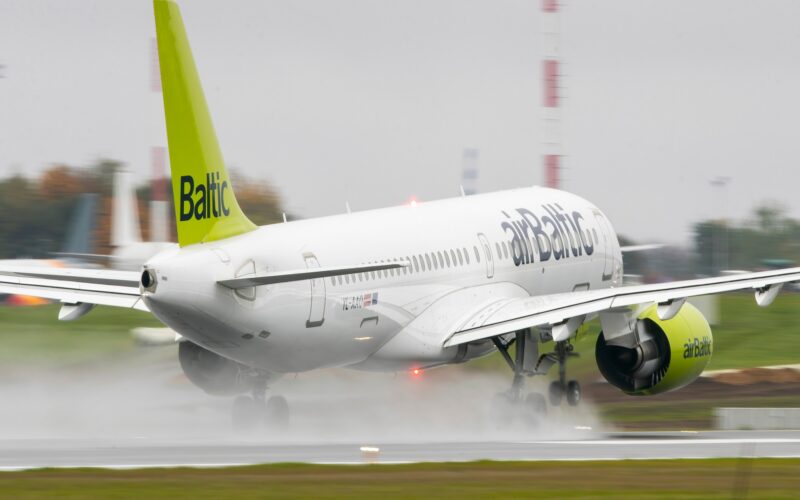airBaltic Achieves Profitable Return Amidst Critical Phase for the Airline

airBaltic has returned to profitability, despite many external factors going against the Riga Airport (RIX)-based airline.
The flag carrier of Latvia ended H1 2023 with a net profit of €14.6 million ($16 million), a swing of €105.6 million from when it ended H1 2022 with a net loss of €91 million ($99.9 million). Revenues for the recent period reached €291.3 million ($320.1 million), as the airline operated 20% more flights compared to the first six months of 2022.
“The exceptional results of the first half of this year have exceeded our expectations. We are doing well in terms of business, and the operating cash flow is at an all-time high,” Martin Gauss, the President and Chief Executive Officer (CEO) of airBaltic, said of the airline’s results. However, Gauss pointed out that the shortages of spare engines for its Airbus A220 fleet have had a negative impact on the carrier’s end result for Q2 2023.
“To mitigate this capacity loss, we were forced to wet-lease in substitute aircraft,” Gauss continued, adding that its performance nevertheless remained strong.
In total, 2 million passengers traveled onboard the airline’s all-Airbus A220 fleet in H1 2023, compared to 2.2 million in H1 2019. However, unlike in H1 2019, the carrier is now profitable, with its previous H1 profit being in 2018. This acts to showcase airBaltic’s resilience to adverse operating conditions throughout the first six months of 2023.
airBaltic highlighted that, by the end of H1 2023, the airline had 42 Airbus A220s, with two more scheduled to be delivered in August 2023. Capacity grew by 36% compared to Q2 2019, and it had an average of 12 aircraft grounded due to the lack of spare Pratt & Whitney PW1500G engines, which exclusively power the Airbus A220.
